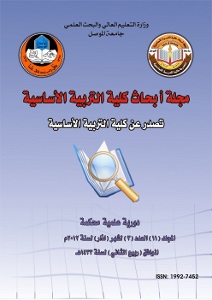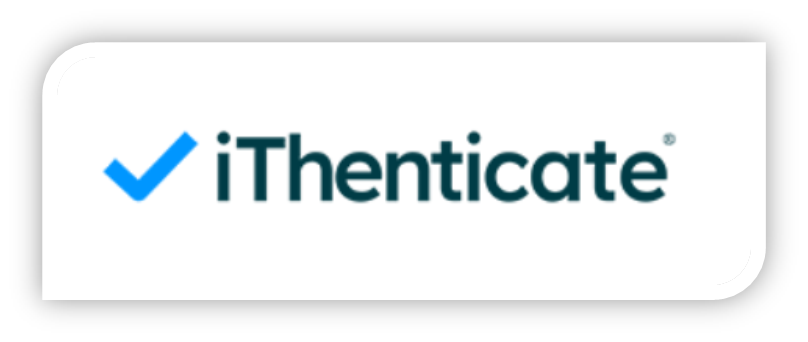The Purpose of Sustainability in Endowment Investment in the Choices of Al-Kamal Ibn Al-Hammam A Comparative Jurisprudential Study
Abstract
This study addresses topic of " Sustainability in Waqf Investments in Legal Opinions of Al-Kamal Ibn Al-Humam: A Comparative Jurisprudential Study", exploring juristic selections of Imam Al-Kamal Ibn Al-Humam in waqf (endowments) and their role in achieving sustainability to ensure perpetual benefits of waqf in alignment with objectives of Islamic law.
Study begins by clarifying concept of sustainability in waqf, focusing on Ibn Al-Humam's contributions to establish jurisprudential principles that preserve continuity of waqf benefits. It examines his stance on investing waqf assets and renewing their resources, highlighting his emphasis on managing waqf to maintain its sustainability and fulfill its intended objectives.
Study further explores impact of Ibn Al-Humam’s views on achieving sustainability, emphasizing his commitment to safeguarding waqf assets and directing their investments towards long-term projects. It also highlights his flexible administrative approach to waqf, ensuring perpetual realization of societal benefits. Additionally, the study delves into his applications for reviving neglected waqf properties and renewing their functions in line with objectives of Sharia.
A comparison is drawn between Ibn Al-Humam’s opinions and those of other scholars from various Islamic schools of thought, showcasing distinctiveness of his methodology, which combines flexibility and a profound alignment with Sharia objectives, particularly in ensuring continuity of waqf returns.
Study concludes with recommendations to develop waqf management practices based on Ibn Al-Humam’s methodology, emphasizing importance of contemporary jurisprudential efforts to enhance sustainability of waqf as a means of societal development.
References
- - “Ahmed, Al-Badri Al-Sayyid Mustafa, jurisprudential rules and their role in establishing the objectives of Islamic law, University Education House, 2020 AD.”
- - “Ibn Manzur, Jamal al-Din Abu al-Fadl, Lisan al-Arab, edited by: Amer Ahmed Haider, Dar al-Kutub al-Ilmiyyah, Beirut, Lebanon, 2009 AD.”
- -“Abu Rayyan, Muhammad Ali, History of Philosophical Thought, University Book House, Cairo, Egypt, 1969 AD.”
- - Al-Asraj, Hussein Abdel Muttalib, The Islamic Endowment as a Mechanism for Financing and Development of the Small Enterprise Sector, Al-Shorouk Publishing House, Cairo, Egypt, 2017 AD.
- -“Al-Affendi, Muhammad Ahmad, Introduction to the Islamic Endowment Economy, Academic Book Center, 2020 AD.”
- - Al-Barhawi, Raad Mahmoud, Endowment Services in Islamic Civilization until the End of the Tenth Century AH, Dar Al-Academies, Cairo, Egypt, 2016 AD.
- --“Al-Barakati, Haiza Nasser, Judiciary in Financial Contracts According to Islamic Sharia, Al-Kutub Publishing Corporation, Britain, 2012 AD.”
- - “Al-Bahuti, Kashshaf Al-Qinaa’, Dar Al-Kutub Al-Ilmiyyah, Beirut, Lebanon, 2009 AD
- - “Al-Hasani, Ismail, The Theory of Objectives according to Imam Muhammad Al-Tahir bin Ashour, International Institute for Islamic Thought, Washington, America, 1995 AD.”
- - “Al-Raisuni, Qutb, The rule of the imam’s management of the flock depends on the interest, Dar Al-Kalima for Publishing and Distribution, 2012 AD.”
- -“Al-Kamal bin Al-Hammam, Fath Al-Qadeer, Al-Babi Al-Halabi and Sons Press, Cairo, Egypt, 1970 AD.”
- -“Jamal, Ahmed Muhammad Abdel Azim, The Role of the Islamic Endowment System in Contemporary Economic Development, Dar Al Salam Printing and Publishing, 2007 AD.”
- -“Saffar, Fadel, The Jurisprudence of Benefits and Corruptions, Dar Al-Ulum for Investigation, Printing, Publishing and Distribution, 2008 AD.”
- -“Arabic Language Academy, Intermediate Dictionary, Dar Al-Kutub Al-Ilmiyyah, Beirut, Lebanon, 2011 AD.”
- -“Al-Laknawi, Abu Al-Hasanat Muhammad Abd Al-Hay, Al-Fawa’id Al-Bahiyyah fi Hanafi Biographies, Dar Al-Ma’arif for Printing and Publishing, Cairo, Egypt, 1975 AD.”
- -“Al-Shawkani, Muhammad bin Ali, Al-Badr Rising with Virtues after the Seventh Century, Dar Al-Kutub Al-Ilmiyyah, Beirut, Lebanon, 2007 AD.”
- -“Al-Sakhawi, The Shining Light of the People of the Seventh Century, Dar Al-Kutub Al-Ilmiyyah, Beirut, Lebanon, 2010 AD.”
- -“Al-Zirakli, Al-A’lam, Dar Al-Kutub Al-Ilmiyyah, Beirut, Lebanon, 2010 AD
- -“Mustafa, Al-Badri Al-Sayyed, Jurisprudential Rules and their Role in Establishing the Objectives of Islamic Sharia, University Education House, Alexandria, Egypt, 2018 AD.”
- -“Issa, Reda Muhammad, Judicial Custody of Funds: A Comparative Study, Library of Law and Economics, Riyadh, Saudi Arabia, 2013 AD.”
- -"Dr. Saleh Yassin Abdel Rahman, the ruling on the inheritance of agricultural lands between Sharia law and Iraqi law - a comparative study -, Kirkuk University Journal for Humanistic Studies, Volume 15, Issue 2, 2020 AD."
- -“Dr. Abdul-Sattar Shahadha Hussein, General Revenue Instruments of Islamic Financial Policy and their Sharia Controls, Kirkuk University Journal for Human Studies, Volume 8, Issue 1, 2013






